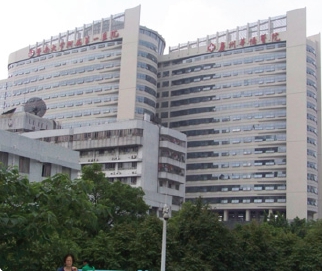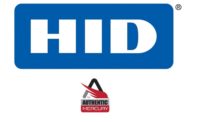
|
| Photo courtesy of HID Global. With 43 departments, 850 beds and 1,100 medical professionals, First Affiliated Hospital of Jinan University Medical College experiences a large influx of people, maintaining and managing access control is a daunting task for security personnel. |
The First Affiliated Hospital of Jinan University Medical College provides medical and healthcare services to Chinese citizens and is also responsible for nurturing medical professionals and spearheading medical research in China.
With 43 departments, 850 beds and 1,100 medical professionals and a 72,000-square-meter in-patient building under construction, First Affiliated Hospital experiences a large influx of patients, visitors and staff, which creates a particular challenge for the hospital’s security management and creates a large number of vulnerabilities throughout the facility.
In the past, it has been relatively easy for an intruder to walk around a hospital unchallenged, accessing areas meant only for authorized staff. In rare cases, this could lead to security breaches where infants are removed from pediatric wards. Therefore, it is critical to safeguard key zones that also include the dispensary, operation rooms and intensive care units.
As a result, the First Affiliated Hospital needed a multi-layered access control system to dramatically increase overall security. With the hospital’s plans to renovate its old buildings and construct a new in-patient building, the new access control system also needed to be scalable to address this expansion.
To achieve much-needed central monitoring and multi-layered security, the hospital installed HID Global’s VertX V1000 network controllers, VertX V100 reader interfaces and iCLASS R10 readers. By connecting VertX V1000 controllers to the host computer via a TCP/IP network, the centralized, web-based IP access control solution performs remote monitoring and area control for key zones while restricting staff access based on their job functions.
iCLASS R10 readers were installed at each entry points and all staff must now present their iCLASS cards to verify their identities. Heightened physical security throughout the hospital was achieved by enabling different levels of building access to certain staff. For example, only doctors and nurses in charge of intensive care units and operating rooms are granted access to these areas. Similarly, only on-duty staff members are permitted to enter the dispensary, preventing accidents and malicious intrusions.
For system management, HID iCLASS R10 readers were connected to a VertX V100 reader interface and VertX V1000 controllers to transfer the entry records to the central station. By incorporating HID’s networked access solutions with system software, the central station administrator can perform all execution commands, including tracking and changing security levels and access rights, as well as data backup and report generation. In the case of communication failures, each entry point is able to execute all commands offline, and once communications are restored, all buffered transactions are uploaded to the host for real-time monitoring and data transmission.
Lastly, the system can collect cardholders’ entry records and information including the employee number, name, department and title for time and attendance purposes.
“After comparing several local and international brands, we selected HID Global’s solutions for its leading technology, worldwide agency certifications, comprehensive post-sales support and lifetime warranty,” said Mr. Zhao, Project Engineer of the First Affiliated Hospital of Jinan University. “Moreover, iCLASS technology delivers enhanced security through data encryption and mutual authentication technologies, addressing our needs for maximum security at key zones.”
In addition, HID Global’s open architecture networked access control solutions meet the hospital’s evolving requirements through simple firmware upgrades. The solutions are also scalable, enabling additional applications such as fire alarm, biometrics and logical access for future system expansion.





